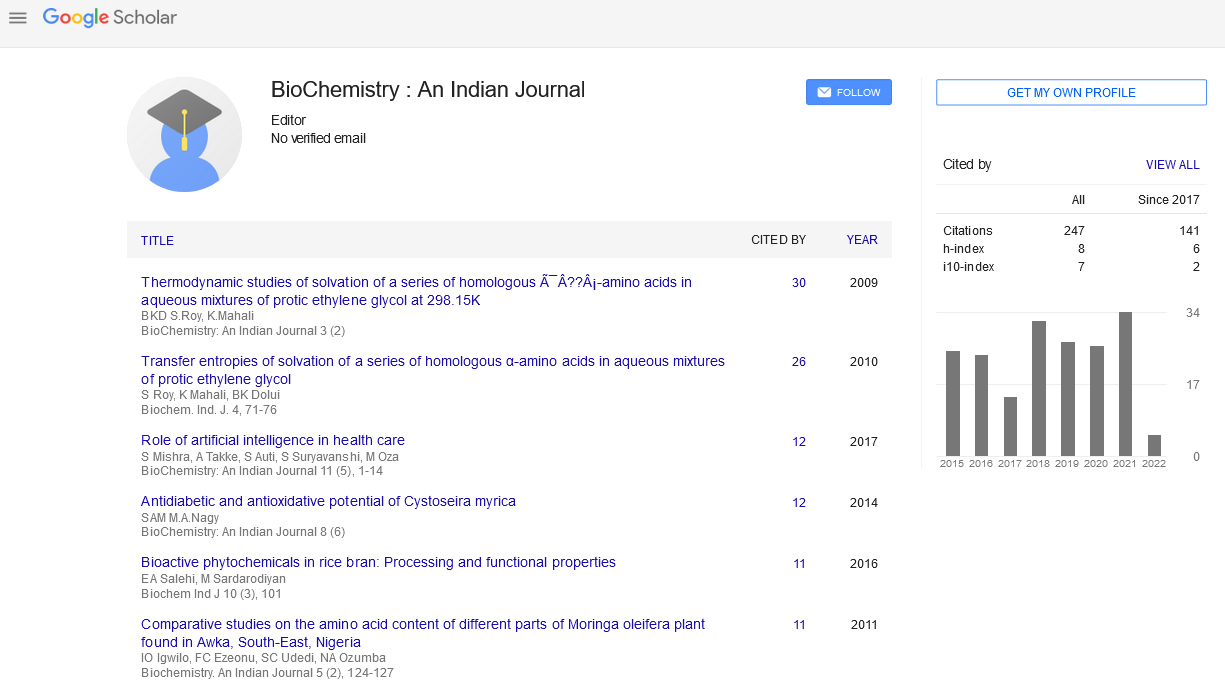Abstract
Role of phytochemicals in cell signaling
Author(s): Jayeeta Bardhan, Runu Chakraborty, Utpal RaychaudhuriMany dietary phytochemicals exhibit health-beneficial effects including prevention of diseases such as cancer, neurological, cardiovascular, inflammatory, and metabolic disorders. Medicinal plants described in Ayurveda and traditional Chinese literatures are the key knowledge resources that inspired molecular research for drug developmentworld over.Aprecise regulation of redox balance is required for the cellular homeostatic control.Aberrant activation of redox-sensitive transcription factors contributes to carcinogenesis by promoting persistent inflammation, abnormal cell proliferation, evasion from apoptosis, angiogenesis, etc.Awide variety of dietary phytochemicals have been reported to exert cancer chemopreventive properties by suppressing the inappropriate activation of the transcription factors. On the other hand, transcription of genes involved in the activation of cellular antioxidant arsenal and carcinogen detoxification is largely regulated by redox-sensitive transcription factors. Chemoprevention, the use of drugs or natural compounds at pharmacological levels to inhibit the development of cancer, is currently attracting a great deal of interest, particularly in USA, but many of the same mechanismsmay be triggered by phytochemicals.Mechanistically, chemoprevention can be achieved by enhancing cellular antioxidant and detoxification capacity, promoting carcinogen detoxification, suppressing abnormally activated pro-inflammatory signaling pathways, down-regulating expression of proteins involved in cell proliferation, inducing apoptosis of precancerous ormalignant cells, and inhibiting neovascularization. Therefore, redox-sensitive transcription factors might be potential targets for chemoprevention with dietary phytochemicals. This paper will focus on how a few representative edible phytochemicals viz. curcumin, aswagandha and neem, can exert chemopreventive effects on oxidative stress and inflammation- associated carcinogenesis through modulation of signal transduction mediated by distinct redox-regulated transcription factors.

